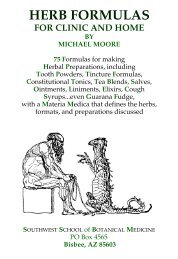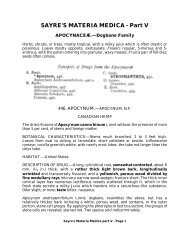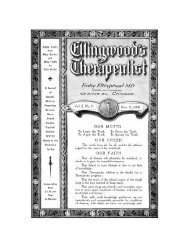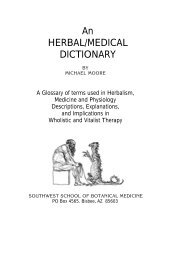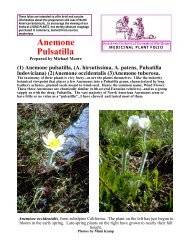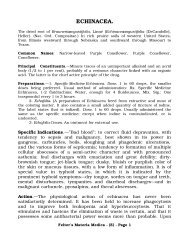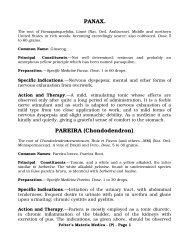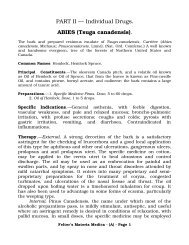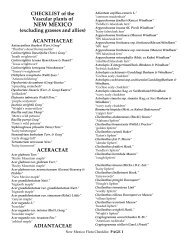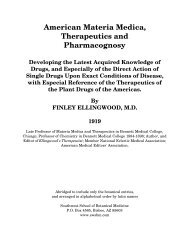SCARLET FEVER. Synonyms.—Scarlatina; Scarlet Rash. Definition ...
SCARLET FEVER. Synonyms.—Scarlatina; Scarlet Rash. Definition ...
SCARLET FEVER. Synonyms.—Scarlatina; Scarlet Rash. Definition ...
Create successful ePaper yourself
Turn your PDF publications into a flip-book with our unique Google optimized e-Paper software.
accounts for the symptoms resembling meningitis.<br />
The disease may begin more or less suddenly, with marked cerebral<br />
excitement, or convulsions may usher in a severe form that may prove<br />
fatal in a few days. As a rule, the disease has a course of from two to six<br />
weeks in children, and from three to five months in the adult.<br />
Symptoms.—Prodromal Stage.—This stage may last for some weeks,<br />
especially if following measles or wmooping-cough or the infectious<br />
diseases of childhood. The child is cross and fretful, restless at night, the<br />
appetite capricious, the breath is bad, and the tongue is coated. The<br />
bowels are usually constipated. The child has occasional spells of<br />
vomiting, which can not be traced to wrongs of the stomach. The patient<br />
loses flesh and strength, the face has a pinched appearance, the eyes<br />
are contracted, and the child, if old enough, complains of pain in the<br />
head.<br />
Stage of Cerebral Excitement.—These symptoms growr more pronounced<br />
till the stage of excitement is fully ushered in. Chilly sensations,<br />
accompanied by severe headache and vomiting, may usher in this stage.<br />
The pain in the head is often of an intense character, the child uttering<br />
a sharp, piercing, hydrocephalic cry. The face is flushed, eyes bright,<br />
and pupils contracted. The screams of the child may persist for hours or<br />
until the child is completely exhausted.<br />
Vomiting, so characteristic of cerebral irritation, is a prominent<br />
symptom. The bowels are obstinately constipated. The fever is usually<br />
not very high, the temperature ranging from 101° to 103°, though<br />
sometimes it may reach 104° or 105°. The pulse is small and rapid<br />
during the early days of the fever, but grows irregular as the disease<br />
advances. With the progress of the disease, owing no doubt to the<br />
pressure caused by the exudate, the cerebral symptoms become more<br />
passive. The patient becomes dull and drowsy, the pupils, which at first<br />
are contracted, now dilate, and the child sleeps with the eyes partly<br />
open. There is twitching of the muscles, and retraction of the head,<br />
especially when the spinal meninges are involved. The respiration may<br />
become, irregular and sighing.<br />
Stage of Paralysis.—This stage occurs as the patient nears the end of<br />
the struggle. The patient can not be aroused, lies with the eyes partly<br />
closed, and there is involuntary twitching of tendons and muscles.<br />
Paralysis of the third nerve is most common, which may involve the<br />
The Eclectic Practice of Medicine - PART I - Infectious Diseases - Page 186



